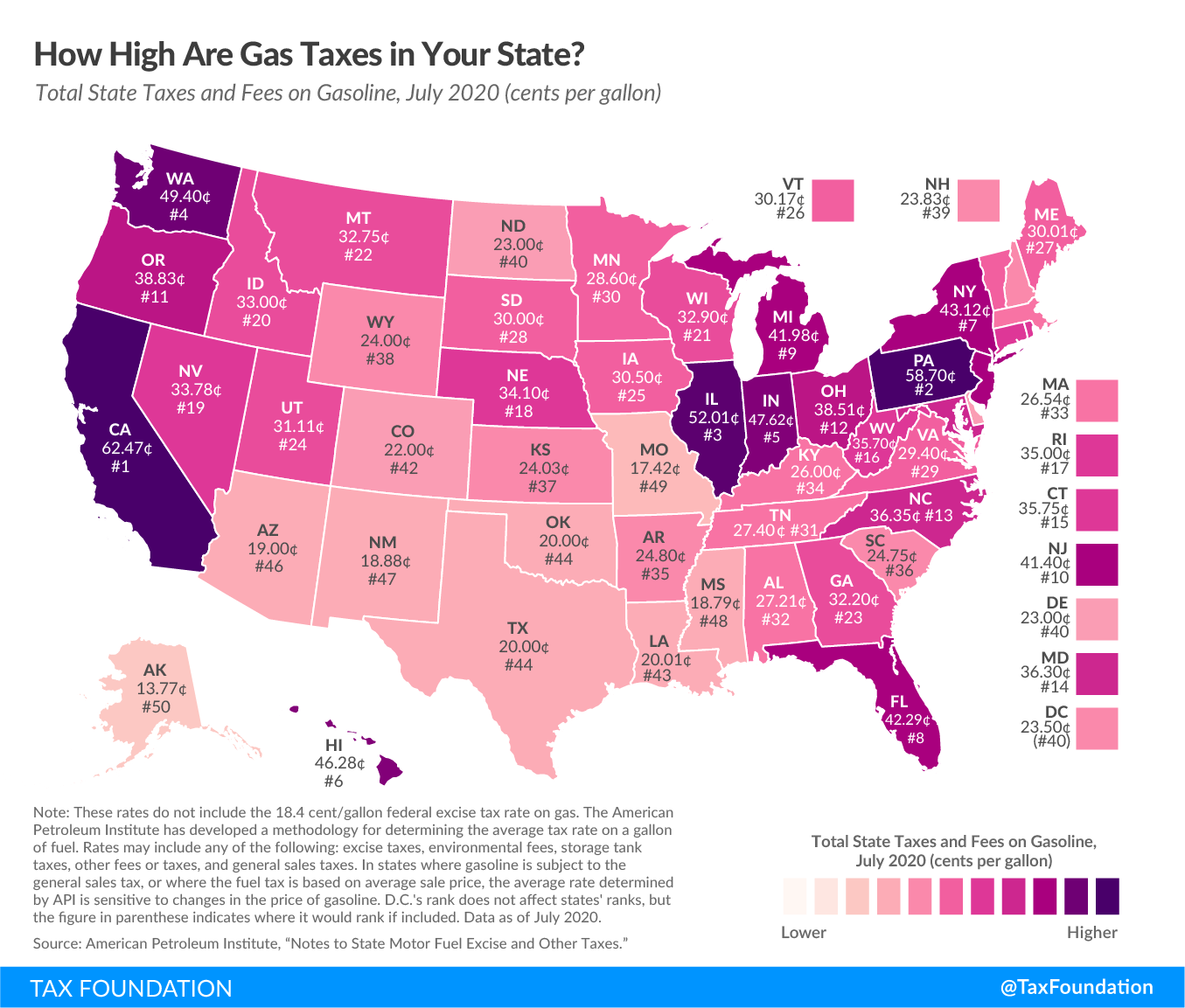State Gasoline Tax Rates as of July 2020
Today’s map shows gasoline tax rates in each state as of July 2020, using recently released data from the American Petroleum Institute.
States levy gas taxes in a variety of ways, including per-gallon excise taxes collected at the pump, excise taxes imposed on wholesalers, which are passed along to consumers in the form of higher prices, and sales taxes that apply to the purchase of gasoline. The American Petroleum Institute accounts for these different approaches when it calculates the average tax rate on a gallon of gasoline in each state. These rates vary widely from state to state and can be seen in the map below.
California pumps out the highest tax rate of 62.47 cents per gallon, followed by Pennsylvania
(58.7 cpg), Illinois (52.01 cpg), and Washington (49.4 cpg). You’ll find the lowest gas tax in Alaska at 13.77 cents per gallon, followed by Missouri (17.42 cpg) and Mississippi (18.79 cpg).
While few taxpayers are cheerleading gas taxes, they do embody the “benefit principle” of taxation relatively well. This public finance concept holds that the taxes a person pays should relate to the government services that person receives. In general, drivers benefit from the services that their gas tax dollars pay for, like road construction, maintenance, and repair. Because gas taxes connect drivers to the costs of road upkeep, they encourage efficient road use, which helps limit congestion and the wear and tear that comes from overuse.
Gas taxes and other user taxes and fees are the most suitable revenue tools for generating the funds to maintain and repair public roads over time. But many states and the federal government don’t index those taxes for inflation, so the nominal value of gas tax revenue tends not to keep pace with infrastructure funding needs across the country. Governments serve their constituents well by keeping road construction and maintenance costs at reasonable levels. However, indexing gas taxes for inflation is a reasonable tool to create a stable revenue source to fund infrastructure maintenance and repair needs for years to come. This helps states avoid leaning on general fund revenues and other less suitable tax sources to maintain roads and bridges.
Original Article Posted at : https://taxfoundation.org/state-gas-tax-rates-2020/

